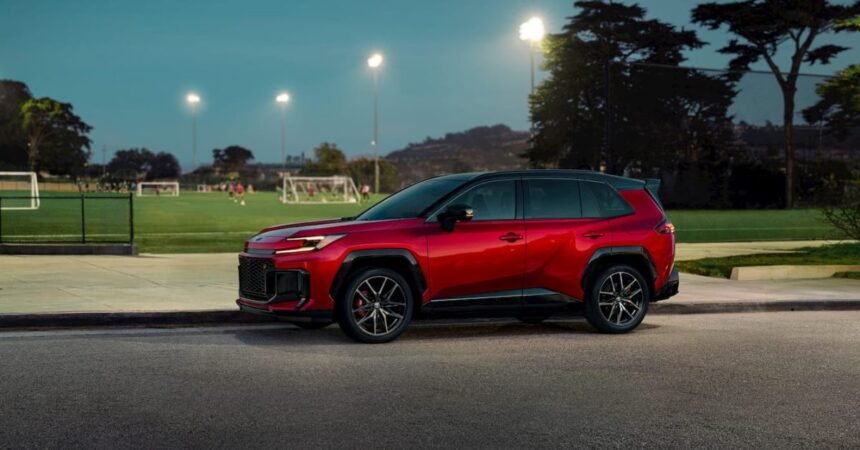Toyota is making a bold move with its new lineup of electrified vehicles, which includes plug-in hybrid (PHEV), hybrid, and EV models. By offering every powertrain option, Toyota believes it has a better chance of achieving success in the increasingly competitive market. But will this strategy prove to be a home run for the Japanese automaker, or will it fall short of expectations?
Toyota has long been known as the king of hybrids, with the iconic Prius leading the way for over 25 years. As the automotive industry shifts towards cleaner and more efficient options, Toyota is placing a big bet on PHEVs to drive growth. While plug-in hybrids are not new territory for Toyota, the company is ramping up its efforts to offer a diverse range of electrified vehicles. In fact, Toyota and Lexus combined offer 32 electrified cars in the US, the most of any automaker in the country.
In the first quarter of this year, Toyota sold over 112,000 electrified vehicles, accounting for nearly 50% of its total sales. Looking ahead, the company anticipates a significant increase in demand for plug-in hybrid vehicles in the US in the coming years. In a recent interview, David Christ, Vice President of Toyota Motor North America, stated that the company plans to grow its PHEV volume across its lineup over the next few years. Sources suggest that Toyota aims for PHEV sales to represent around 20% of its total US sales by 2030, a significant increase from the current 2.4%.
To make its electrified lineup more appealing, Toyota is focused on increasing the electric-only range of its vehicles. The recently updated PHEV version of the popular RAV4 now offers a 50-mile electric range, up from 42 miles in the previous model. However, the company faces some challenges with PHEVs, as they require a costly combination of EV and gas-powered technologies. This results in PHEV models costing significantly more than their hybrid or gas-powered counterparts.
Despite these challenges, Toyota is optimistic about the future of its electrified lineup. The company sees PHEVs as a bridge to fully electric vehicles, and it is working on launching a range of new EVs in the US market. The updated bZ electric SUV, set to arrive at dealerships later this year, will feature increased range, new styling, and compatibility with Tesla Superchargers. Additionally, Toyota plans to launch the smaller C-HR and rugged bZ Woodland electric SUVs in 2026.
While Toyota’s focus on hybrids and PHEVs may seem like a safe bet, especially given its current market position, the rapidly advancing EV market poses a potential threat. With other automakers, such as Nissan and Honda, also doubling down on hybrids and PHEVs, Toyota may face stiff competition in the years to come. As the industry shifts towards more efficient and affordable EV technologies, Toyota’s big bet on hybrids and PHEVs could be a risky move. Only time will tell if Toyota’s strategy will pay off or if it will fall short in the ever-evolving automotive landscape.






